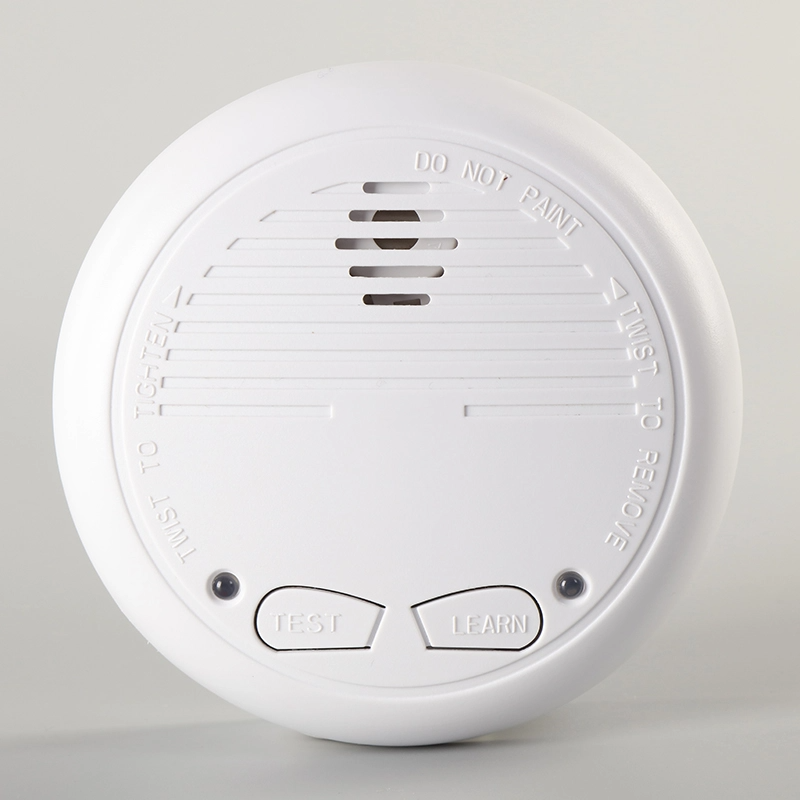Views: 0 Author: Site Editor Publish Time: 2025-03-13 Origin: Site









Did you know that over 45% of households with gas appliances don't regularly test their gas alarms? What if you could ensure your safety by verifying your alarm's functionality in just a few minutes? This guide reveals essential steps, tips, and benefits to help you know if your gas alarm is working properly. Learn how to ensure your gas alarm is functioning correctly to protect your home and family by discovering key steps, tips, and benefits for verifying alarm efficiency.
Gas leaks can be silent and deadly. Carbon monoxide, a common gas leak byproduct, is odorless and invisible, making it difficult to detect without proper equipment. Regular testing of your gas alarm ensures it can alert you to potential dangers, giving you and your family time to escape.

Before testing, ensure your alarm is properly installed. Place CO detectors at least 15 feet away from fuel-burning appliances and never in a garage or near a furnace. Combustible gas detectors should be placed in areas where leaks are most likely, such as near gas appliances or in basements.
1. Locate the Test Button: Most gas alarms have a test button labeled "Test" or "Test/Reset."
2. Press and Hold: Press and hold the test button for the recommended time—usually around 5-10 seconds. The alarm should sound immediately.
3. Check Indicator Lights: If your alarm has indicator lights, they should flash or change color during the test.
4. Release the Button: After the test, release the button. The alarm should stop sounding within a few seconds.
Successful Test: If the alarm sounds and stops as expected, your alarm is likely working correctly.
No Response: If the alarm doesn't sound, it may need batteries, a replacement, or professional service.
One of the most common issues with gas alarms is dead batteries. Check the battery compartment regularly and replace batteries according to the manufacturer's instructions. Some alarms have low-battery indicators, so watch for flashing lights or chirping sounds.
Dust and debris can interfere with alarm sensors. Use a vacuum cleaner or soft brush to clean the alarm's exterior and vents at least once a year. Never use water or harsh chemicals.
Gas alarms have a limited lifespan. Most CO detectors need replacing every 5-7 years, while combustible gas detectors may last up to 10 years. Check your alarm's manual for specific replacement guidelines.

Knowing your gas alarm is working correctly gives you peace of mind, allowing you to relax and enjoy your home without constant worry.
Regular testing ensures your alarm can detect gas leaks early, giving you and your family time to evacuate and call for help.
Many local building codes and insurance policies require working gas alarms. Regular testing ensures you comply with safety standards and maintains your insurance coverage.
| Type | Detects | Placement | Lifespan |
|---|---|---|---|
| CO Detector | Carbon Monoxide | Away from fuel appliances | 5-7 years |
| Combustible Gas | Natural Gas, Propane, etc. | Near gas appliances, basements | 5-10 years |
| Combination Detector | Both CO and Combustible Gases | Strategic locations based on need | Varies (check manual) |
Perform visual inspections monthly to check for signs of damage, dust, or debris. Ensure the alarm is securely mounted and that no objects block its sensors.
Maintain a record of alarm tests, battery replacements, and any maintenance performed. This can help you stay organized and ensure you comply with safety standards.
Ensuring your gas alarm is working is crucial for the safety of your home and family. By following these steps, you can test and maintain your alarm, giving you peace of mind and ensuring early detection of potential gas leaks.
It's recommended to test your gas alarm monthly to ensure it's functioning correctly. Regular testing can help detect potential issues before they become a serious safety hazard.
If your gas alarm sounds, immediately evacuate the area and contact your gas provider or emergency services. Do not attempt to locate the source of the gas leak yourself, as this could be dangerous.
Signs that your gas alarm isn't working properly include no sound when tested, intermittent beeping, or a red light indicating a fault. If you notice any of these issues, it's important to have your alarm repaired or replaced as soon as possible.
Please Enter Your Information
0574 62566055/62566056
+86 13245660006
+86 13081966918
13245660006
13081966918
Copyright © 2021 Ningbo Kingdun Electronic Industry Co.,Ltd.
Support by Leadong.com